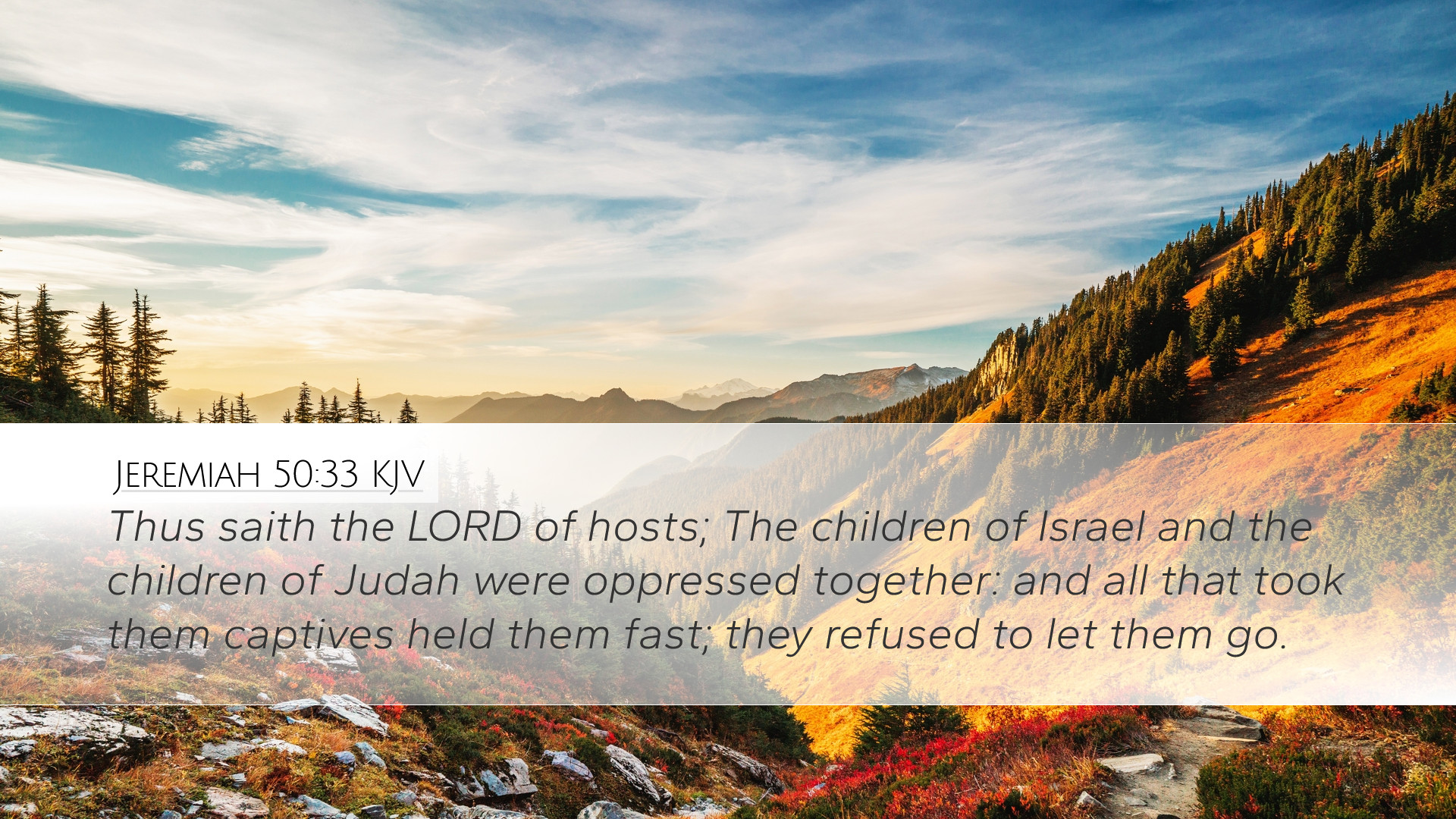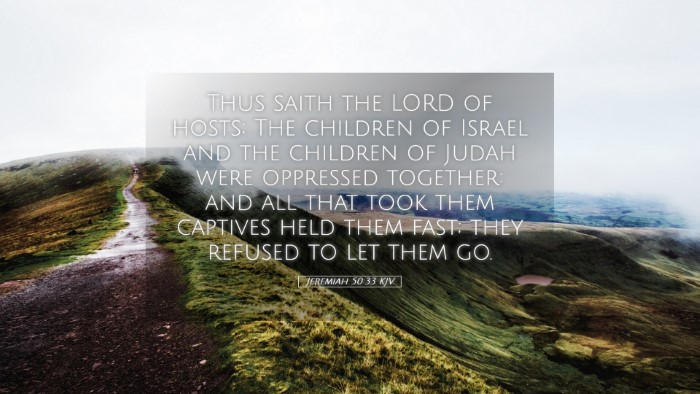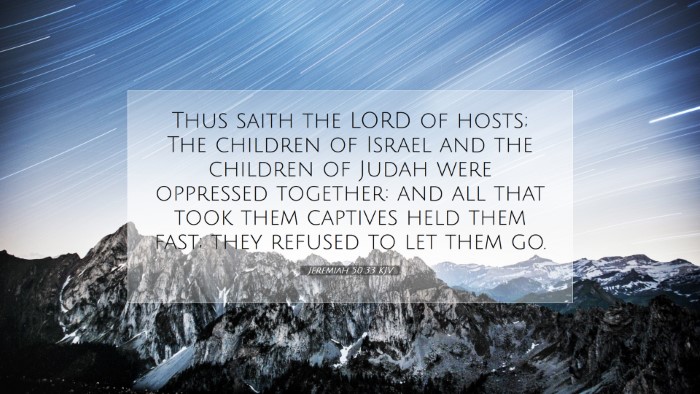Commentary on Jeremiah 50:33
Jeremiah 50:33 states: "Thus saith the Lord of hosts; The children of Israel and the children of Judah were oppressed together: and all that took them captives held them fast; they refused to let them go."
Contextual Background
This verse occurs within a prophetic message concerning the impending judgment against Babylon. As one of the principal enemies of the Israelites, Babylon stands symbolically for oppression and captivity. The context of this passage reveals the intense struggles faced by both Israel and Judah, emphasizing their shared experience of suffering.
Insights from Public Domain Commentaries
Matthew Henry's Commentary
According to Matthew Henry, this verse conveys God’s pronouncement concerning the collective suffering of Israel and Judah. Henry emphasizes the unity of the two kingdoms in their oppression, suggesting that their mutual experiences of hardship reflect the broader theme of corporate identity in suffering. He draws attention to the promise of deliverance that accompanies this acknowledgment of oppression. Henry highlights the deep spiritual implications of their captivity; it serves as a consequence of their disobedience to God.
Albert Barnes' Notes on the Bible
Albert Barnes focuses on the implications of this verse regarding divine justice. He points out that the reference to the "children of Israel and the children of Judah" signifies not just a historical account but a theological principle: the Lord’s people, regardless of their divisions, are ultimately under His sovereign will. Barnes elaborates that the stubbornness of their captors—those who "held them fast"—is indicative of God's overarching plan to eventually liberate His people. He notes that this promise is enhanced by the fact that divine intervention is necessary for true liberation from their oppressors.
Adam Clarke's Commentary
Adam Clarke provides a detailed interpretation regarding the terms used in the verse. He argues that the language of oppression "held them fast" speaks vividly to the depth of bondage faced by both kingdoms. Clarke places particular emphasis on the term "refused," suggesting that it points to the obstinacy of the Babylonians in denying the Israelites their freedom. This refusal serves as a critical reminder of God's fidelity to His covenant promises; even in their dire situation, God’s power to intervene remains intact. Clarke's analysis frames this situation not just as a historical anecdote but as a warning of the consequences of nations that turn against God’s chosen ones.
Theological Implications
A thorough examination of Jeremiah 50:33 reveals several theological themes central to the understanding of God’s relationship with His people.
- Covenant Fidelity: The verse illustrates God's unbroken covenant with Israel and Judah, signifying that their suffering is not outside His awareness or plan.
- Corporate Suffering: In recognizing that both groups faced oppression, the passage expresses the theological concept of collective sin and suffering, emphasizing the importance of unity in times of distress.
- Divine Sovereignty: The phrase “held them fast” demonstrates the notion that while human forces may seem powerful, they are ultimately subject to God’s authority.
- Hope of Restoration: Within the promise of judgment lies the assurance of restoration, revealing God’s desire for the redemption of His people.
Applicational Insights
For pastors and theologians, this verse serves as a rich source for preaching themes related to suffering, oppression, and hope. The unity of Israel and Judah can inspire contemporary congregations to reflect on their common struggles and the necessity of supporting each other during times of trial. The acknowledgment of captivity also prompts believers to examine areas of bondage in their lives, affirming that while suffering is a part of the Christian experience, it does not denote the absence of God's presence or power.
Additionally, students of Scripture can draw from the historical context to better understand the dynamics of ancient Israelite society and their reliance on God during crises. This verse offers a pivotal illustration of God’s justice and mercy, serving as a reminder that in every season of life—good or bad—God remains committed to His people.
Conclusion
Jeremiah 50:33 encapsulates the story of suffering and deliverance integral to the narrative of Israel’s history. Drawing upon insights from revered commentaries, we find that this verse not only elucidates the condition of God’s people but also heralds the eventual promise of liberation and restoration. As such, it provides a profound source of encouragement and theological reflection for pastors, scholars, and believers today.


